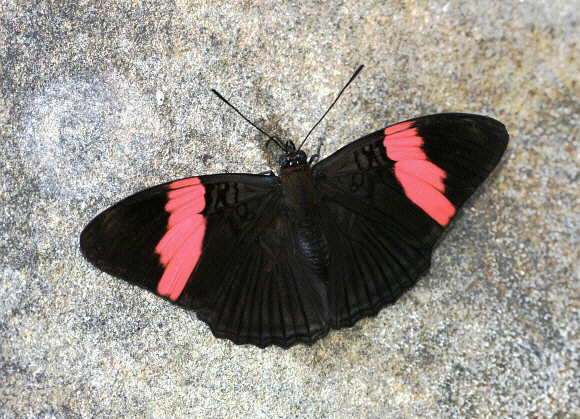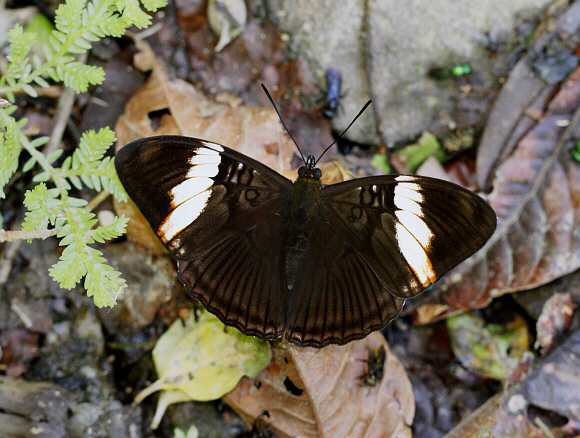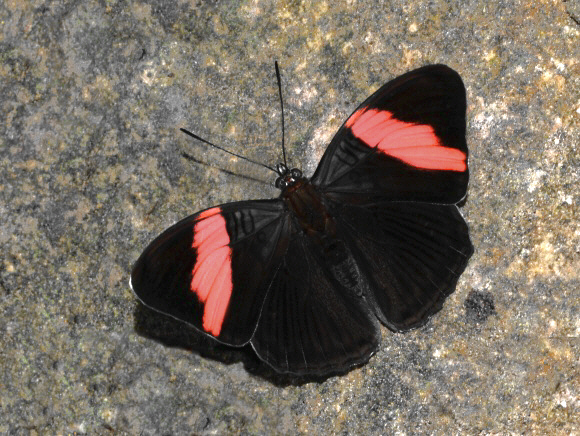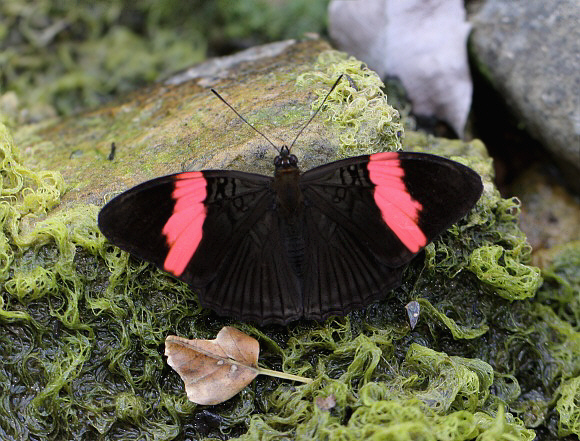
Introduction
Adelpha butterflies are colloquially known as ‘Sisters’. In terms of appearance many species are reminiscent of the White Admirals ( Limenitis ) of Eurasia, and share with them a fondness for flitting gracefully around the lower branches of trees in the dappled sunlight of the forest.
There are 85 known species of Adelpha, all except two of which are confined to Central and South America. The majority of species are similarly marked with bands of white, and orange markings in the subapical area but lycorias is unique in having broad pink bands across the forewings. Rather oddly, in the Colombian subspecies wallisii the pink colourations is replaced by white.
Adelpha lycorias occurs from Mexico to Paraguay, and also in the Atlantic cloudforests of Brazil.

Habitats
Adelpha lycorias is commonest in cloudforest habitats between about 500-1500m but can be found from sea level up to at least 2400m.

Lifecycle
The egg is white, and is laid singly. The fully grown larva is pale brown. On the thoracic segments it has a pale saddle armed with 8 long whorled spines. A series of shorter spikes run along the back and sides. The larvae feed on Myriocarpa or Urera ( Urticaceae ) in rainforest, Trema ( Ulmaceae ) in deciduous forest, or Cecropia ( Moraceae ) in cloudforest. They can be found resting on the upper surface of eaves, where they adopt an ‘S’ posture. The pupa is suspended by the cremaster from a twig. It is oddly shaped with an enormous ‘jug handle’ on the thorax. It is dark brown with bronze wing cases.
Adult behaviour
Adelpha lycorias has a slower and more graceful flight than the white-and-orange banded Adelpha species. Males often glide in circles at knee-height, alighting for a moment here and there on damp soil to imbibe moisture. Both sexes feed at rotting fruit, either in the canopy or on the forest floor.

